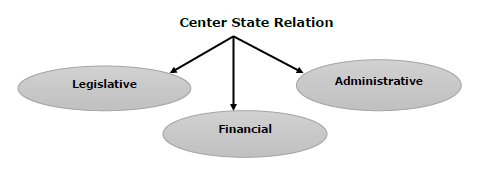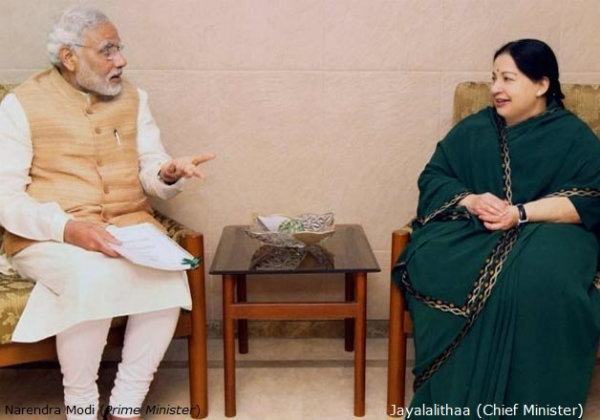Articles 255 to 263 describe Legislative relations.
Article 256 states that the executive power of every State shall be so exercised as to ensure compliance with the laws made by Parliament and any existing laws which apply in that State, and the executive power of the Union shall extend to the giving of such directions to a State as may appear to the Government of India to be necessary for that purpose.
Article 257 (1) states that the executive power of every State shall be so exercised as not to impede or prejudice the exercise of the executive power of the Union, and the executive power of the Union shall extend to the giving of such directions to a State as may appear to the Government of India to be necessary for that purpose.
Article 258 (2) states that a law made by Parliament which applies in any State may, notwithstanding that it relates to a matter with respect to which the Legislature of the State has no power to make laws, confer powers and impose duties, or authorize the conferring of powers and the imposition of duties, upon the State or officers and authorities thereof.
Article 261 (3) states that final judgments or orders delivered or passed by civil courts in any part of the territory of India shall be capable of execution anywhere within that territory according to law.
Article 262 (1) states that Parliament may by law provide for the adjudication of any dispute or complaint with respect to the use, distribution or control of the waters of, or in, any inter-State river or river valley.
Article 262 (2) states that notwithstanding anything in this Constitution, Parliament may be law provide that neither the Supreme Court nor any other court shall exercise jurisdiction in respect of any such dispute or complaint as is referred to in clause (1).



No comments:
Post a Comment